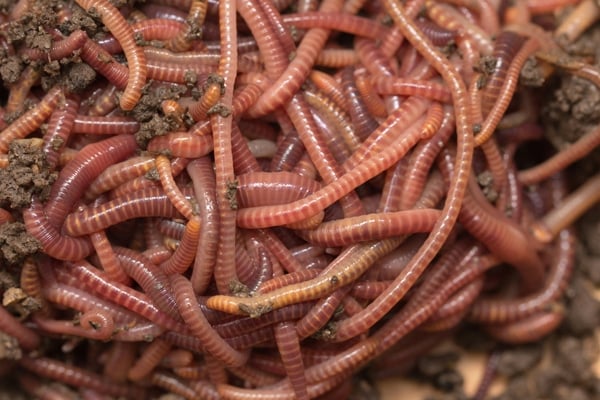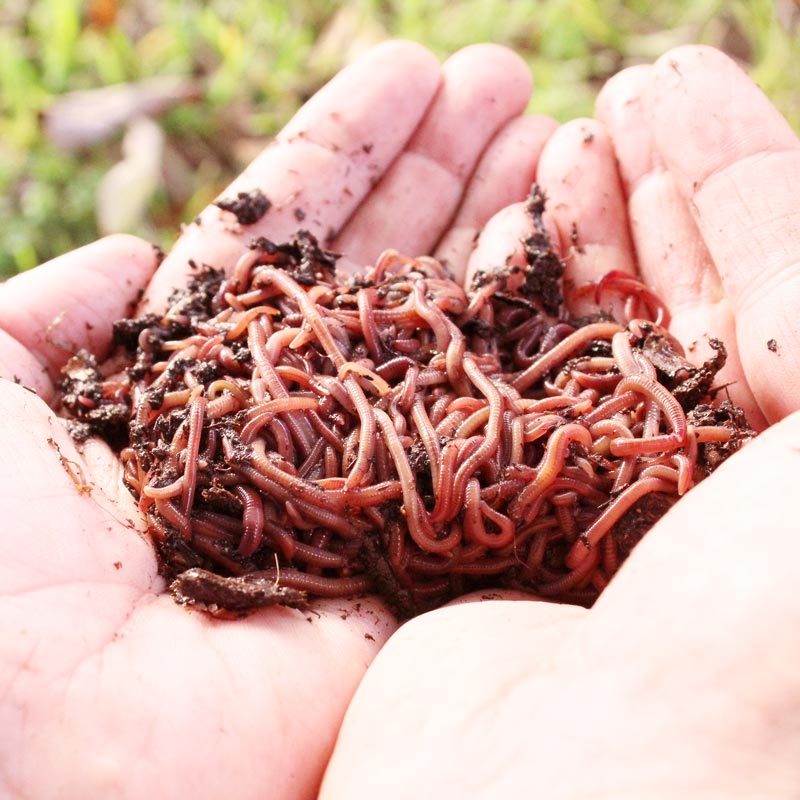Get the Perfect Worms for Your Garden with Red Wiggler Express
Get the Perfect Worms for Your Garden with Red Wiggler Express
Blog Article
Red Wigglers 101: Everything You Need to Know for Thriving Gardens
Red wigglers, or Eisenia fetida, play a critical duty in sustainable horticulture techniques, serving as effective decomposers that transform natural waste right into important vermicompost. Comprehending their environment, nutritional preferences, and the myriad advantages they provide can change your horticulture method (Red Wiggler Express). As these worms flourish in certain conditions, their treatment and management are important for optimizing their contributions to soil health and wellness. The question continues to be: what steps can you take to harness the complete potential of these impressive organisms in your own yard?
Understanding Red Wigglers

Red wigglers grow in environments abundant in organic material and moisture. Red Wiggler Express. They possess an one-of-a-kind gastrointestinal system that permits them to refine food scraps quickly, eliminating spreadings that are packed with crucial nutrients such as nitrogen, phosphorus, and potassium. These spreadings enhance soil framework, boost water retention, and foster advantageous microbial task, every one of which add to durable plant health and wellness
Moreover, red wigglers can endure in diverse problems, making them adaptable to various gardening methods, including indoor and exterior composting systems. Their capability to eat huge quantities of organic waste daily settings them as valuable allies for both home garden enthusiasts and commercial farmers. By incorporating red wigglers into horticulture efforts, one can substantially enhance dirt fertility and assistance sustainable horticulture techniques.
Suitable Habitat for Red Wigglers
Creating an optimal atmosphere for red wigglers is vital for optimizing their composting capabilities and overall wellness. Red wigglers grow in wet, dark, and well-aerated habitats, which closely resemble their natural surroundings in ground cover and rotting raw material. A suitable environment needs to offer a temperature variety between 55 ° F and 77 ° F(13 ° C to 25 ° C), as severe temperature levels can worry or harm the worms.
The bed linens product, such as shredded newspaper, cardboard, or coconut coir, must be kept moist but not overly wet, as extreme moisture can lead to anaerobic conditions detrimental to worm wellness. Furthermore, a pH level in between 6.0 and 7.5 is suitable, making sure a well balanced environment.
Proper oygenation is equally important; it permits oxygen circulation and avoids the buildup of hazardous gases. A container or bin made for vermicomposting need to have drain holes to get rid of excess dampness and promote air flow. Routine surveillance of these conditions is necessary for preserving a thriving red wiggler population, ultimately boosting their efficiency in breaking down organic waste and improving garden dirt.
Dietary Needs and Preferences

Red wigglers exhibit particular choices; they are specifically fond of softer, decomposing materials over more challenging or even more coarse substances. It is necessary to stay clear of feeding them citrus peels, onion, and garlic in large amounts, as these can be dangerous. Additionally, meat, dairy products, and oily foods should be omitted, as they can attract bugs and produce undesirable smells.
(Hickory NC Worms For Sale)To preserve ideal wellness, a balanced mix of environment-friendly and brown products is suggested. Green products, such as vegetable scraps, provide nitrogen, while brown products, like cardboard and dried out fallen leaves, supply carbon. Keeping track of the wetness web content and ensuring a constant food supply will further enhance their growth and composting capabilities. By dealing with their nutritional requirements, garden enthusiasts can cultivate a flourishing population of red wigglers in their garden compost systems.
Benefits of Utilizing Red Wigglers
The remarkable advantages of making use of red wigglers in horticulture prolong much past their role in composting. These versatile browse around this web-site microorganisms contribute substantially to soil health, improving vitamins and mineral availability and promoting microbial activity. By freshening the dirt as they burrow, red wigglers boost drainage and origin penetration, developing an optimal environment for plant development.
In addition, red wigglers are effective recyclers of natural waste, transforming it right into nutrient-rich castings that act as a superb all-natural plant food. These castings have beneficial microbes and crucial nutrients, such as nitrogen, phosphorus, and potassium, which are crucial for plant advancement. The slow-moving release of nutrients from worm spreadings guarantees a steady supply, lessening the threat of nutrient leaching and promoting sustainable horticulture methods.
Additionally, the presence of red wigglers can help suppress soil-borne plant conditions. Their digestion processes produce compounds that inhibit hazardous virus, therefore enhancing plant health. Lastly, making use of red wigglers promotes an extra lasting horticulture technique by lowering dependence on chemical fertilizers and advertising a closed-loop system, where waste is transformed right into useful sources. Overall, incorporating red wigglers into horticulture methods uses a wide variety of environmental and agricultural advantages.
(Red Wiggler Express)
Composting With Red Wigglers

To initiate a successful vermicomposting system, select a suitable container with correct ventilation and drainage. The optimal atmosphere for red wigglers consists of a wet, dark setup with temperature levels in between 55 ° F and 77 ° F. Begin by layering shredded paper, cardboard, and food scraps, guaranteeing a balanced mix of carbon and nitrogen-rich products.
Red wigglers grow on vegetable peels, fruit scraps, coffee premises, and eggshells, while staying clear of meat, dairy products, and oily foods that can bring in parasites. Routinely keep an eye on dampness levels; the bed linen should perspire but not soggy. Harvest worm spreadings every few months by dividing the worms from the compost, which can then be utilized straight in yards or kept for later use.
Carrying out vermicomposting not only lowers landfill waste yet additionally improves yard soil, advertising healthy plant development and lasting horticulture practices. Welcome this green approach to improve your gardening ventures.
Verdict
In summary, red wigglers are vital organisms for improving garden performance with efficient composting. Their specific environment needs, nutritional preferences, and substantial advantages add to sustainable horticulture techniques. By utilizing red wigglers, gardeners can considerably improve dirt top quality and nutrient schedule, promoting healthier plant growth. Embracing the technique of vermicomposting not only supports waste decrease yet additionally promotes an eco-friendly equilibrium within garden ecological communities, inevitably causing prospering and resistant gardens.
Report this page